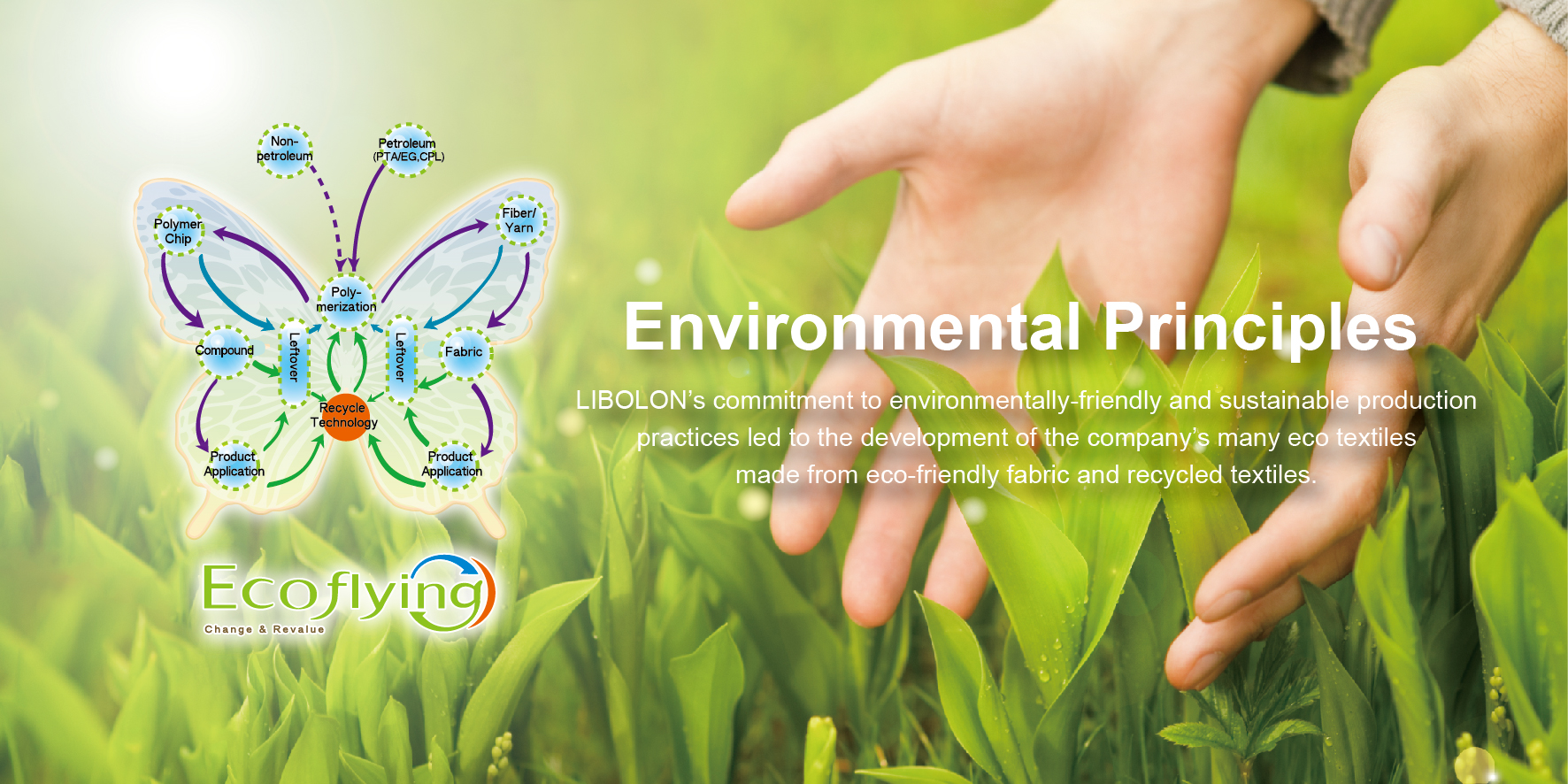
LIBOLON emphasizes two concepts - "producing more from less" , and "upgrading resource productivity" - to reduce material and energy consumption when manufacturing its eco textiles from recycled fabrics and recycled textiles. LIBOLON is dedicated to eliminating wasteful consumption of unnecessary raw materials, processes, and energy, as well as lowering the amount of waste created during the production process.
LIBOLON "designs for the environment" - with eco friendly practices being conceptualized during the development of each new eco textile product. In 2000, the Taiwan manufacturer created its first dope dyed fiber. One special feature of the fiber is that no dyeing process is needed after weaving, thus not only reducing consumption of water and energy, but also cutting down 70% to 82% in emissions of wastewater and CO2.
LIBOLON designs with the complete "life cycle" of its eco textiles in mind. Starting from 2003, LIBOLON used recycled yarns and other recycled fabrics to create finished fabrics for its office walls. In addition, in 2006 Chunghua Polyester Fibers Factory commenced production of the LIBOLON RePET® brand eco textile from post-consumer bottles. Future plans will utilize waste fabrics and yarns from LIBOLON weaving factories to manufacture other recycled textiles and eco textiles. 。
In 2010, LIBOLON proposed the "EcoFlying – Nylon, Polyester Closed Recycle System" , using the scraps produced by the factories to produce RePET-P and RePET-W products by going through the recycling and reproduction process, in order to meet the goal of extending product sustainability.
Oeko-Tex Standard 100 is a globally standardized inspection and certification system targeting all textile raw materials, semi-finished products and finished products during the production stage. Its main goals are to test for harmful materials, including those materials that are forbidden by the law, chemical components that are harmful to human health, as well as to develop alert benchmark parameters that include the protection of health.
Bluesign® standard is a guarantee that ensures the entire production chain is not harmful to humans and the environment. It takes into account consumer safety, wastewater and waste emission, and the health of the employees, in order to achieve the goal of resource productivity. At the same time, it also provides directions on how to effectively manage energy conservation and waste reduction, in order to reduce the potential waste on resources and capital.